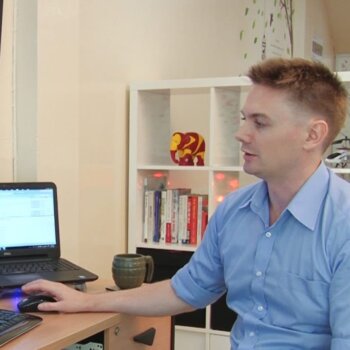(Women on Top in Tech is a series about Women Founders, CEOs, and Leaders in technology. It aims to amplify and bring to the fore diversity in leadership in technology.)
Here is our interview with Judith Owigar, Co-Founder at Akirachix Association and Founder/CEO at JuaKali Workforce Limited. She believes that exposure, education and use of technology can increase the quality of life and as such change the world. As a Social Entrepreneur, she uses technology as a catalyst for positive change. This is what led her to Co-found AkiraChix an organization whose vision is to nurture generations of women who use technology to develop innovations and solutions for Africa. Her passion for increasing female social capital in the African Tech ecosystem has helped propel the entry of many young women, girls and now children, into careers in Science Technology Engineering and Math.
What makes you do what you do?
The hope that tomorrow can be better than today and the belief that I have the power to make it so. I hold this thought in any initiative I am a part of or any job that I carry out. While founding AkiraChix, my inspiration was seeing more women represented in the field of technology. My scope later expanded to include women’s representation careers in Science Technology Engineering and Math (STEM). By offering young women from low-income areas a chance to build careers in these sectors, we were essentially giving them the opportunity earn a good living that they previously did not have access to. For my current initiative- Juakali.co.ke, I believe that we can improve the livelihoods of young people in the informal sector using technology. Kenya’s youth constitute 75% of the country’s population, a win for the youth is a win for the country.
How did you rise in the industry you are in?
Hard work, networking and visibility. The first task is to work hard and smart in the field of your choosing. This required me to do some tasks that were not enjoyable yet were necessary to the success of my respective initiative. I had to learn the basics of accounts, budgeting and legal which was not very enjoyable for me but was necessary to the survival of the organization.
In order for my start up to be visible in the industry, I had to network with different players and in diverse events in the industry. Through networking, I met funders, partners, supporters and collaborators.
Why did you take on this role/start this startup especially since this is perhaps a stretch or challenge for you (or viewed as one since you are not the usual leadership demographics)?
I decided to start this Juakali Workforce since I saw there was a need for people to get reliable workers to do basic jobs like plumbing, carpentry, cleaning etc and I felt I could be a part of the solution. I initially did not think I was the best person to do the job, but I have done many things well for which I did not think I was the best person suited for the job. While carrying out a task I am not familiar with I am always willing to learn and I am confident in my ability to be a quick study. Another thing I do is strive to understand my strengths and weaknesses so that I can leverage on my strengths and get people to help in the areas I am weak. For many leadership positions in disruptive spaces, you get experience by being a leader in the disruptive space. There is no school for this other than doing it.
Do you have a mentor that you look up to in your industries or did you look for one or how did that work?
I do not have a dedicated mentor but I do have access to people who I can reach out to in case I need to advise on an issue. I also read and listen to podcasts based on the experiences of successful entrepreneurs and thought leaders.
I have worked with life/career coaches especially when I needed someone to help me work through an issue in life or career. I reached out to my respective coaches through references and recommendations.
Now as a leader how do you spot, develop, keep, grow and support your talent?
The first step is to understand yourself as a person, your strengths and your weaknesses. Hire people who have strengths in areas where you are weak and those who can also help you to build on your strengths. Also hire people who buy into your vision, who are seeking to learn and who can challenge your decisions.
Do you consciously or unconsciously support diversity and why?
I consciously decide to build and work in diverse teams. I am aware that some of my insights and decisions are biased based on my upbringing, or location, or my education. One of the effective ways to deal with this is to surround myself with people who have different views than I do, but with whom we can work together.
What is your take on what it takes to be a great leader in your industry and as a general rule of thumb?
A leader is defined by the principles and values they stand for. This shapes their point of view and the decisions they make. The ability to hold on to the vision as you go through the mundane and often insignificant steps in the journey is also important for a leader.
Advice for others?
I think the essence of leadership is about service, service to family, team, company or nation. I believe this is further emphasized by these words on Martin Luther King Jr. “If a man is called to be a street sweeper, he should sweep streets even as a Michaelangelo painted, or Beethoven composed music or Shakespeare wrote poetry. He should sweep streets so well that all the hosts of heaven and earth will pause to say, ‘Here lived a great street-sweeper who did his job well.” – Martin Luther King Jr.
To learn more about Akirachix Association, please see http://akirachix.com/.
I am a huge fan and cheerleader of Women Leaders — If you know of an AMAZING Woman Founder, CEO, Leader in Tech or you are one yourself — Write me here.
AMPLIFY Conscious Business Leadership with me.































